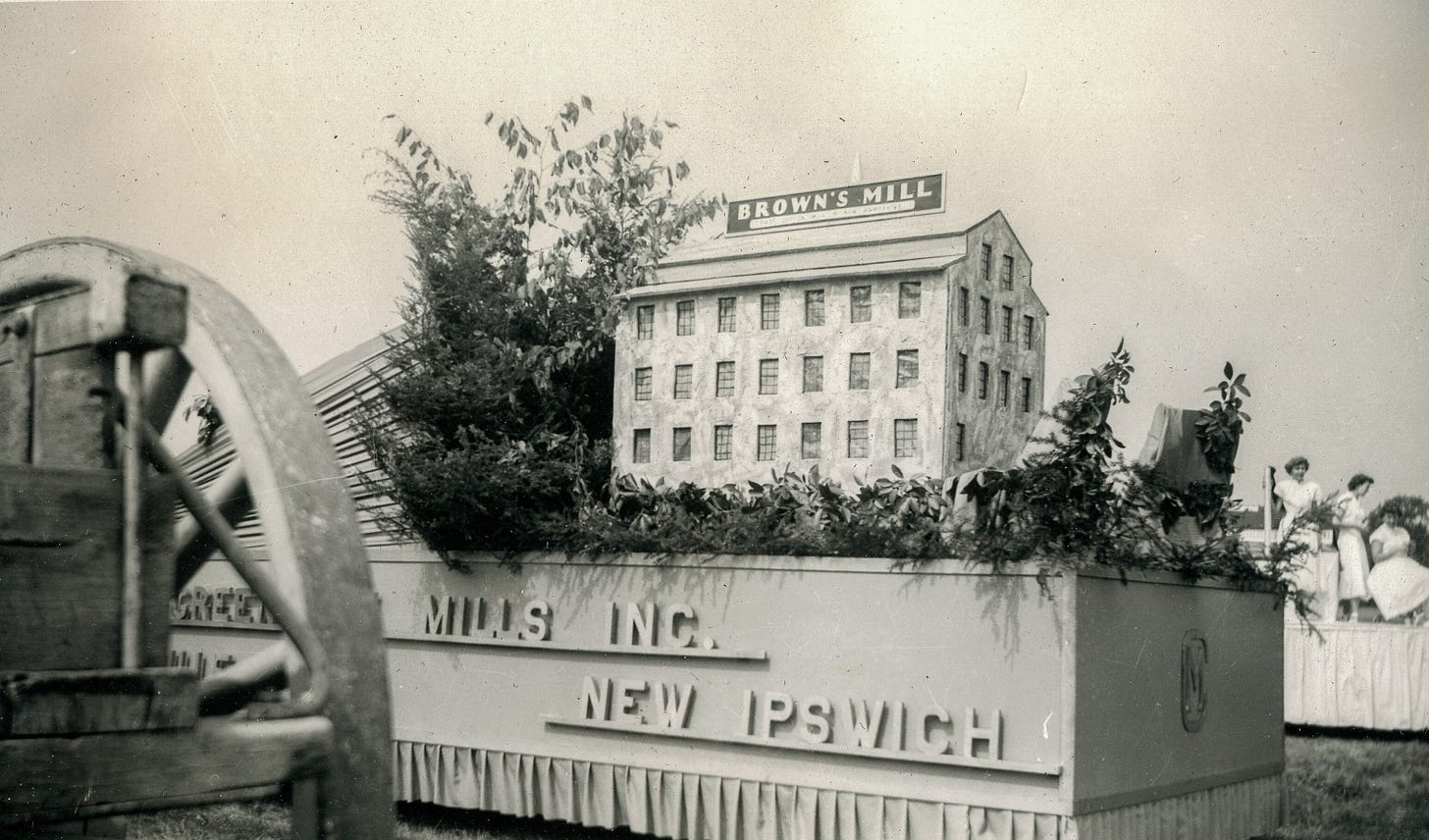January 1872
Considerable excitement prevails in New Ipswich in consequence of the breaking out of the small pox in a large boarding house there. It was communicated by a Frenchman, recently from Canada, who lodged in a boarding house containing sixty boarders. We have heard various rumors as to the number who have the disease, varying the number of cases now existing from fifteen to twenty, and the deaths from four to seven. Our citizens, and all others in the immediate neighborhood of the disease should exercise great care not to expose themselves to its influence. If the authorities take prompt measures to check its spread, outsiders have little to fear. LATER. We learn from a source we consider reliable, that only five deaths from small-pox have yet occurred, and that there are now only eight persons sick with it-four quite sick, and the other four recovering. Also, that it is confined exclusively to the boarding house at Brown's factory, some two miles from the middle of the town. It is entirely among the French population. The selectmen of the town have taken all possible measures to prevent its spread.
Brown’s Mill Factory
New Ipswich Bicentennial Parade. Float of the Old Brown Mill, the first Cotton Mill in New Hampshire, - photo donated by Mr. Camille S. Bourgeois Jr.
James Roger diary entry
September 4th 1908 (Friday)
Fair and sunny, beautiful day. David, R. & Whittemore on Cemetery roads. I pulled some grapes and pulled a few blueberries and finished lots in Cemetery. Got 2 baskets of “Porter” apples from Huckins. Telephone service disarranged today owing to tree being cut and allowed to be on wires at Homestead.
September 14, 2024 - 13:30
New Ipswich Historical Society cordially invites the public to its Annual Meeting and Program.
FINNS: An Oral History of Finnish-Americans
in New Hampshire’s Monadnock Region
Presented by Patricia Kangas Ktistes
New Ipswich Museum of History (72 Academy Road) - formerly Appleton Academy
Our 30-minute business meeting will be followed by this year’s featured speaker, Patricia Kangas Ktistes, who will describe her experience of interviewing Finnish-Americans in New Ipswich and surrounding communities for the purpose of preserving their stories for future generations.
In addition to sharing interesting anecdotes and audio clips that she collected for her Master’s thesis in the 1990s, Patricia will provide participants with her recommendations and useful tips for collecting family histories before elders pass and their knowledge and experiences are lost to time.
Patricia Kangas Ktistes was born in New Ipswich in 1952, and attended town schools through ninth grade. In 1967, she moved out of state with her family. In 1987, she earned a B.S. from Colby-Sawyer College and received her MALS degree at Dartmouth College in 1997. Her master’s thesis is entitled FINNS: An Oral History of Finnish-Americans in New Hampshire's Monadnock Region. Patricia has two daughters and five grandchildren; she and her husband John Ktistes reside in Rockport, MA




It's hard to not draw comparisons between smallpox and covid.
Moses Brown and Nathan Appleton (of New Ipswich) were the financiers of the first small cotton mill in the US in Pawtucket, RI, followed by the larger ones Waltham and in New Ipswich. Moses hired Sam Slater who had recently come from England and had in his head the blueprint of the English loom, a trade secret that was not to be exported. Nathan born October 1, 1779 in New Ipswich, New Hampshire and spent his summers here, was based in Boston, and died one of the 10 wealthiest men in Boston, having stock in 24 different textile companies and with a net worth of over $800,000. Still, he called that an accident. “It was accident, not effort, that made me rich,” he said. Nathan then partnered with his cousin Francis Cabot Lowell to build the mills in Lowell, Mass (named after Lowell).